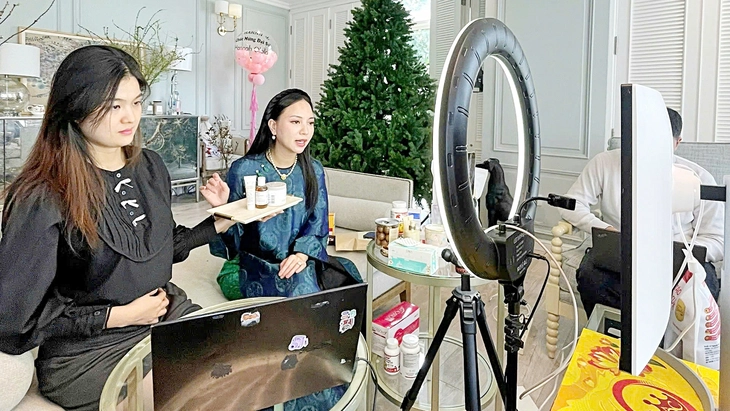
Ms. Hannah Nguyen on genuine product livestream sessions - Photo: NVCC
Amidst a matrix of floating products and unverified advertising, the wave of cheap cosmetics poses many risks regarding quality and safety.
"Miraculous" effects but super cheap price
Although she has only used genuine cosmetics bought at shopping malls, Ms. T. (living in Tan Binh District, Ho Chi Minh City) said she is still attracted by advertisements for "instant skin whitening" and "24-hour sun protection" for only a few hundred thousand VND on TikTok and Facebook.
After a few weeks of using a cheap sunscreen product bought online, she began to experience redness, burning, itching and had to see a dermatologist.
Similarly, Ms. N., a regular customer of many "hand-carried" cosmetics shops on social networks, said that once she bought a product advertised at an original price of 1.2 million VND but sold it for only 225,000 VND. The seller promised "genuine goods, tax-free, wholesale" so she trusted it very much.
However, recently, cosmetic companies have warned that there is no such cheap price, so Ms. N. began to doubt: "The seller confirmed that it was genuine, but the company said there was no such price, so I was even more confused."
According to Tuoi Tre newspaper reporters at a stall at Kim Bien market (District 5), many types of sunscreen, skin whitening and melasma treatment products are sold at high discounts, priced from only 130,000 VND.
Other melasma treatment or whitening products are also advertised as exclusive distribution products, "specialized" for many different skin problems, with wholesale prices that can be 20 - 30% lower than the listed price.
In addition, when asking about whitening and melasma treatment products, the seller also introduced some "company products" with full sub-labels and exclusive distribution, so if imported in bulk, the price will be much lower, and it will be easier to "make a profit" if used for business.
"The product costs 220,000 VND, but if you buy 3 or more items, the price is 180,000 VND. Because the retail price must be announced by the company, but when selling wholesale, the seller gets a commission on the product, so the price is much lower," this person shared.
On social media platforms such as Facebook, TikTok, Shopee, many products are also offered at very cheap prices, only from 80,000 - 100,000 VND. It is worth mentioning that these products are advertised with "miraculous" and multi-purpose uses such as treating melasma and brown spots after only a short time of use.
For example, the Q. melasma treatment product with more than 190,000 sales on TikTok Shop costs 90,000 VND.
In the introductory video , the seller said that this product is "specialized" for those who have long-term melasma, freckles and uneven skin tone, and have used many products without results, then this cream will treat it. The products are labeled "Korean technology cream", "Japanese technology sunscreen", "miraculous melasma treatment without peeling"...
This cream is so "miraculous" that it can even treat burns. "Just apply a thin layer, the next morning the skin will gradually calm down and gradually become more even-toned," according to the advertisement.
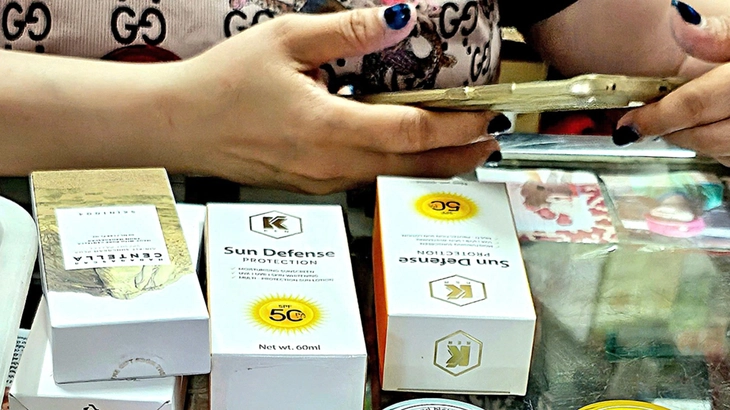
Some cheap cosmetics are sold at a stall at Kim Bien market (HCMC) - Photo: TRUONG LINH
"Ambush" even real businesses
Manager of AB Beauty World chain of stores, Ms. Ho Thien Kim said that cosmetics now have many segments like high-end fashion products.
In particular, "super fake" products often cost half the price of genuine products, and it is almost impossible to distinguish if users have never experienced the quality of genuine products before.
These counterfeit products still have full information, importing company, production batch number, sub-label... packaging also does not have many significant differences.
However, the "characteristic" of these products is that although they have a sub-label, they do not have a company label or anti-counterfeit label.
"With the current level of sophistication, even long-time sellers cannot distinguish between real and fake products just by looking at the packaging," said Ms. Kim.
The problem of cheap cosmetics even caused this chain to close up to 2/3 of its total stores, cut staff and change its business model to optimize operating costs.
Ms. Hannah Nguyen, co-founder of Skinetiq Joint Stock Company, added that some products such as sunscreen, melasma treatment cream, brightening nutrients, etc. are made so sophisticatedly that they are identical to genuine products, while counterfeit products are even printed more beautifully than the real ones.
In addition, buyers also have difficulty "managing" when counterfeiters and scammers create websites that are identical to genuine websites, the only difference being that "products with available counterfeit sources are allowed to be purchased, while products without will be linked to the real website".
The attached store addresses are genuine stores, "quất làm cam bị" - selling fake goods but the responsible people are the genuine distributors and agents.
"To compete and warn consumers about counterfeit goods, we also spend money on product promotion, running media campaigns...
Meanwhile, for cosmetic businesses, they also need space to focus on product quality research, rather than finding ways to cope with the cheap cosmetic market,... profit margins are therefore also significantly reduced," said Ms. Hannah.
Branded cosmetics "afraid" of the Vietnamese market
According to traders and distributors, Vietnam is a potential market that has attracted the attention of many international brands over the years. However, the widespread availability of counterfeit and fake goods at super cheap prices is making many foreign businesses hesitant to invest in the long term.
The recent increase in inspections and handling of violations by authorities is a positive sign. If Vietnam continues to tighten management and quality control of the cosmetics market, there will certainly be more large corporations willing to expand their investment in the Vietnamese market in the near future.
Impersonating celebrities to sell fake cosmetics
Recently, a series of videos that cut and fake images of famous people have appeared widely on social networking platforms, especially in the cosmetics industry.
By taking advantage of personal reputation and familiar faces to the public, these subjects created false promotional videos, making it easy for consumers to "fall into the trap".
Not stopping at basic editing, many cases also use artificial intelligence technology to create videos with voices and facial expressions identical to real people, making consumers disoriented when distinguishing between real and fake.
According to Ms. Hannah Nguyen, on the Facebook platform alone, the blue-ticked fanpage Hannah Olala has more than 700 fake accounts, regularly running ads and selling fake products. Below the posts are also attached links to buy the products professionally.
However, when consumers discover that they have purchased counterfeit goods, they seek out the official channel to complain. This greatly affects the reputation and working process of genuine cosmetic distribution companies.
Source: https://tuoitre.vn/my-pham-gia-re-tan-day-cong-dung-than-ky-coi-chung-boi-hang-gia-len-nguoi-20250621223725018.htm



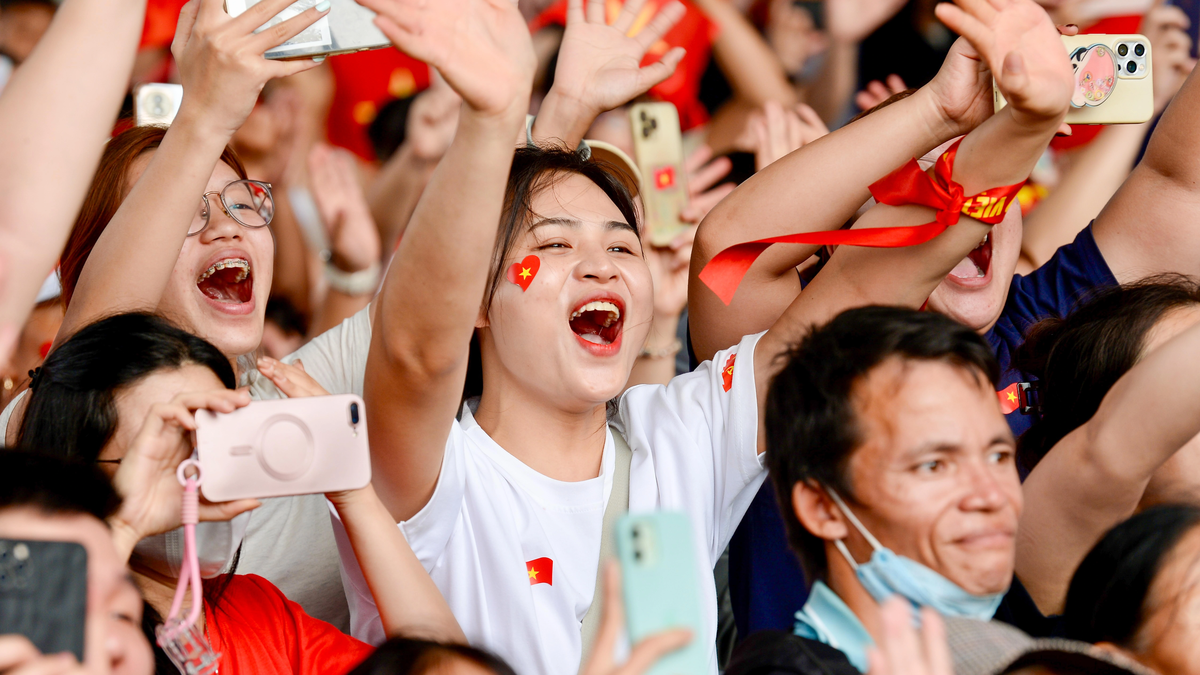
![[Photo] People eagerly lined up to receive special publications of Nhan Dan Newspaper](https://vphoto.vietnam.vn/thumb/1200x675/vietnam/resource/IMAGE/2025/8/30/53437c4c70834dacab351b96e943ec5c)


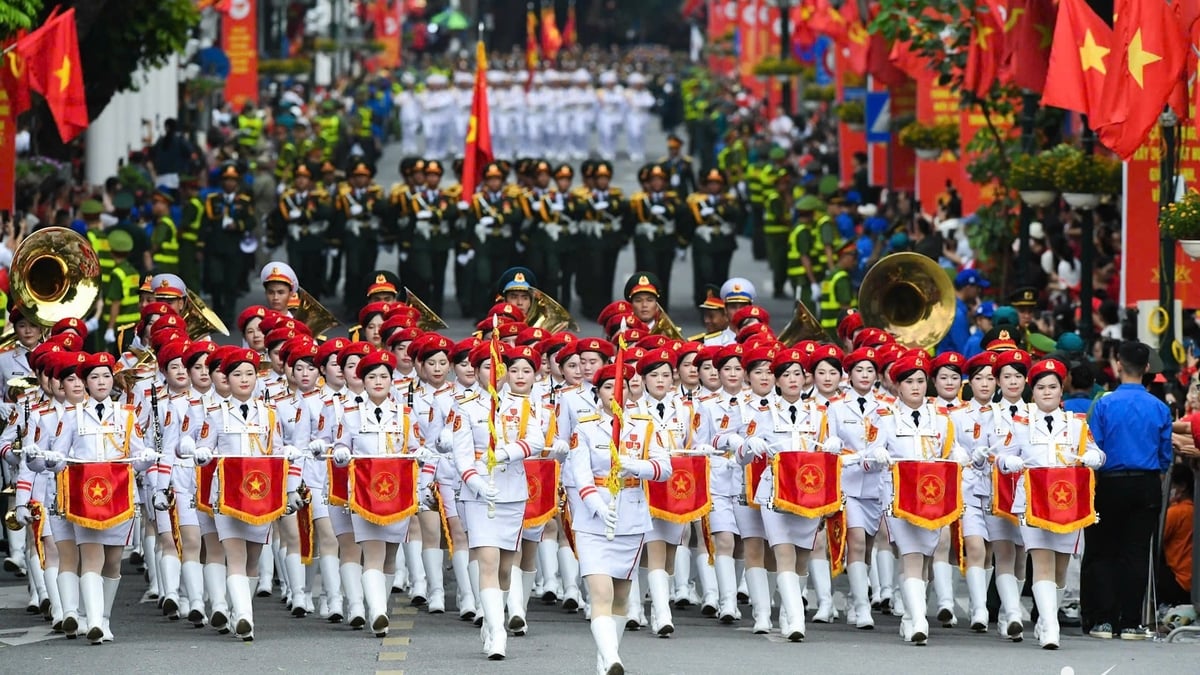

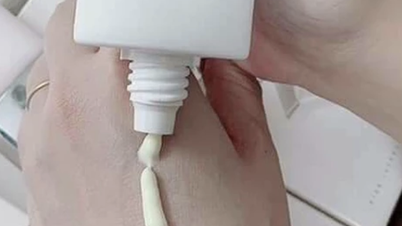
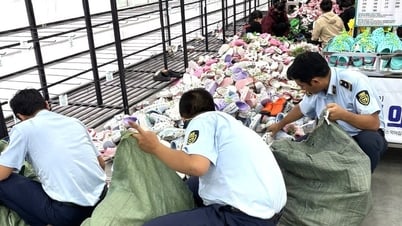


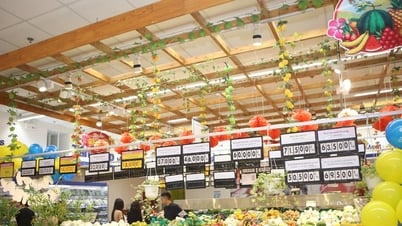

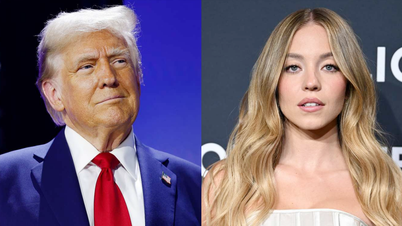
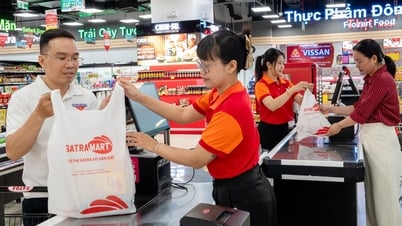
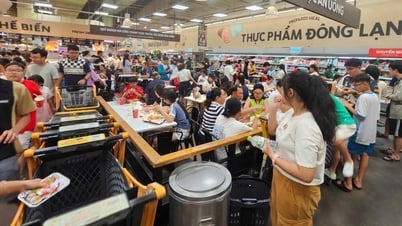



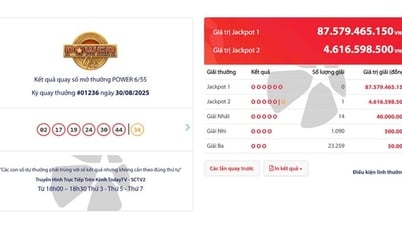







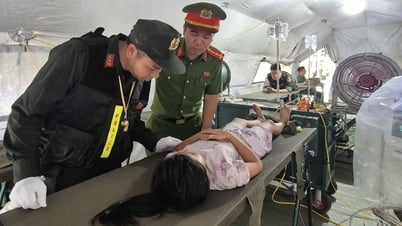
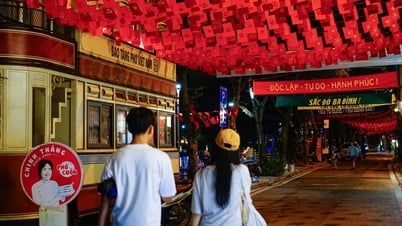

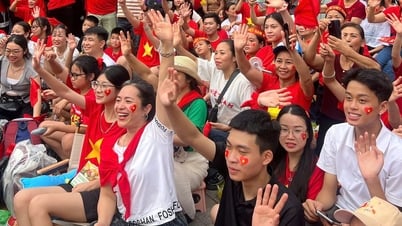


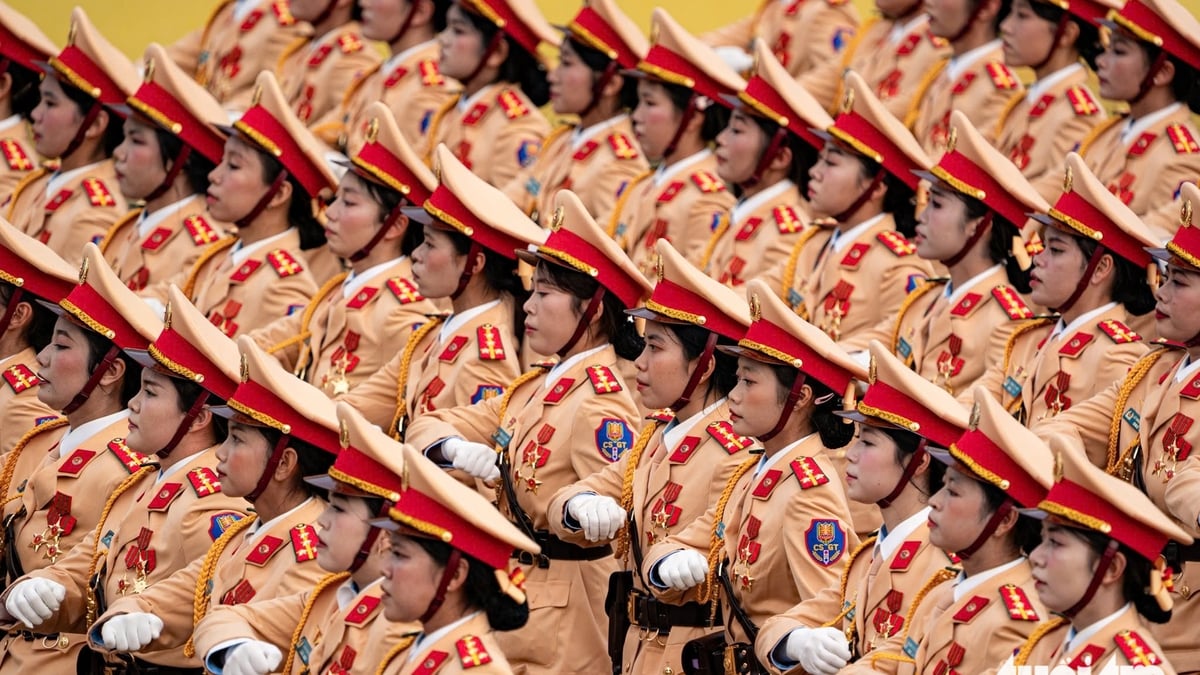




















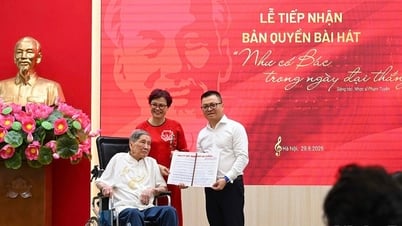
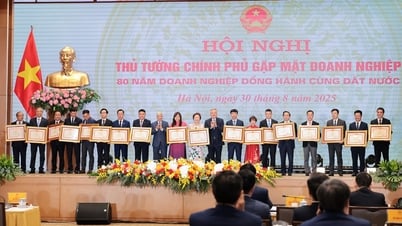



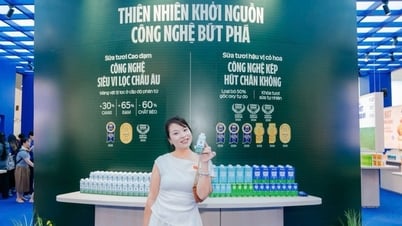



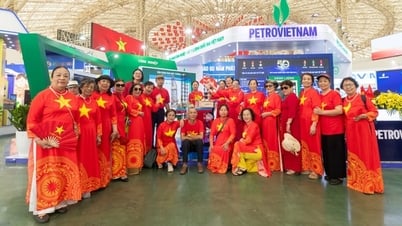
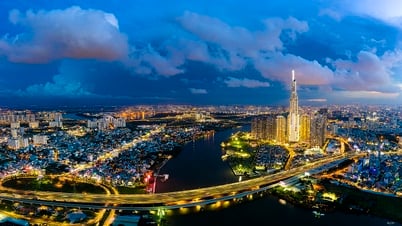


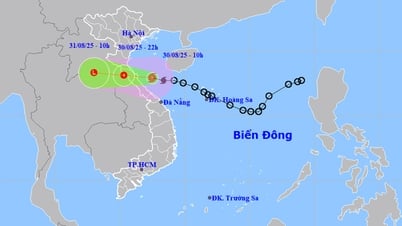


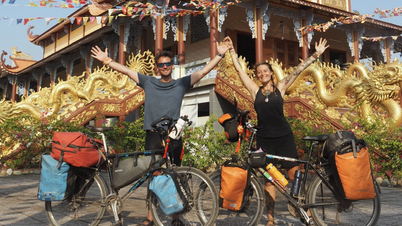
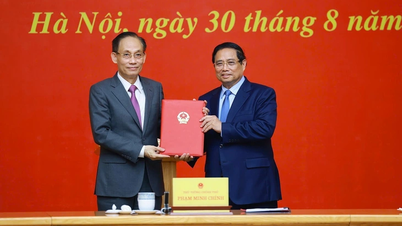

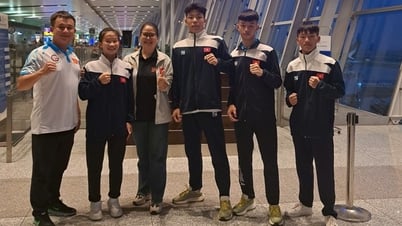
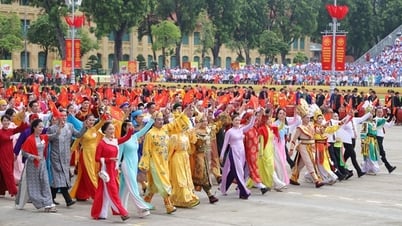
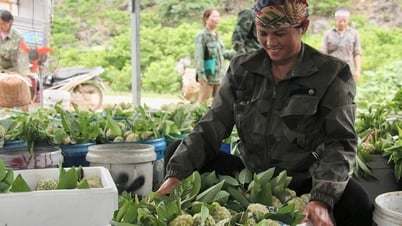

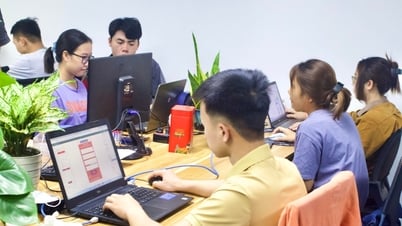
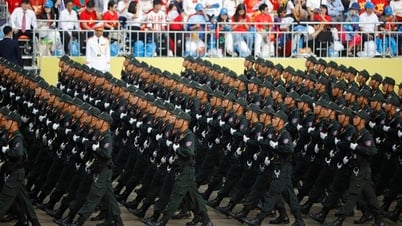


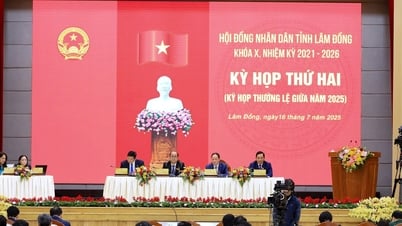
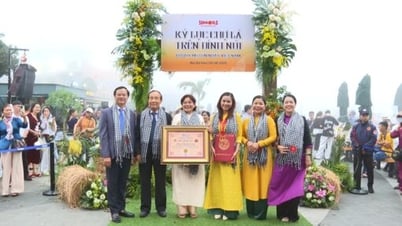







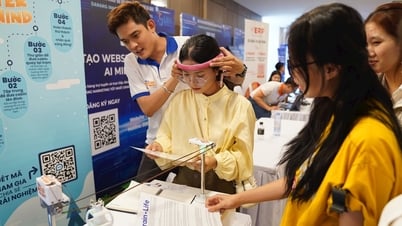







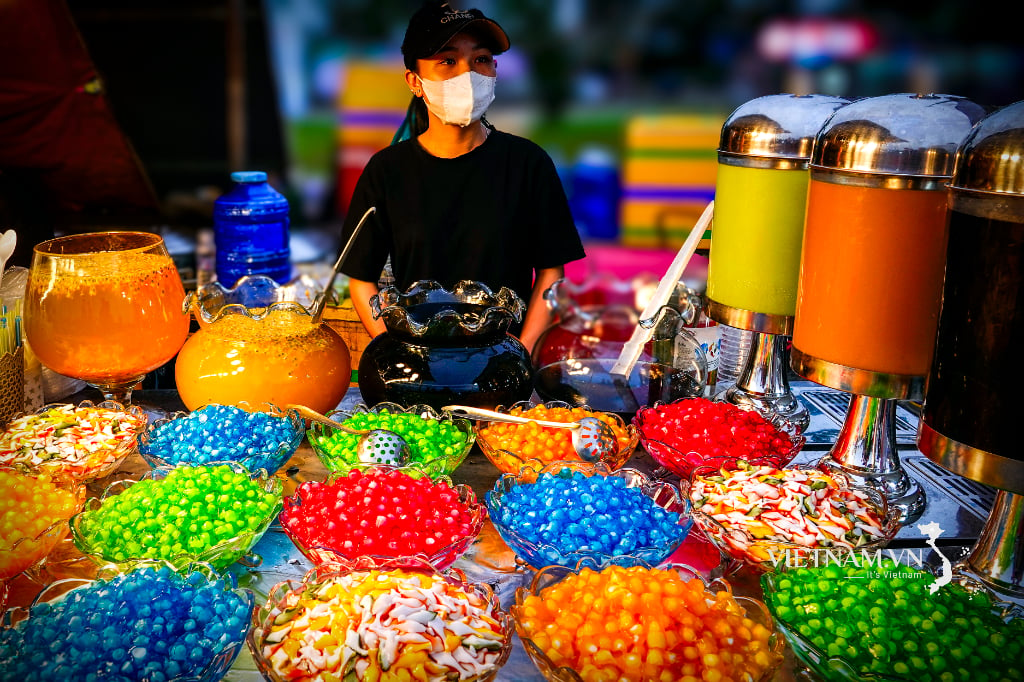



Comment (0)